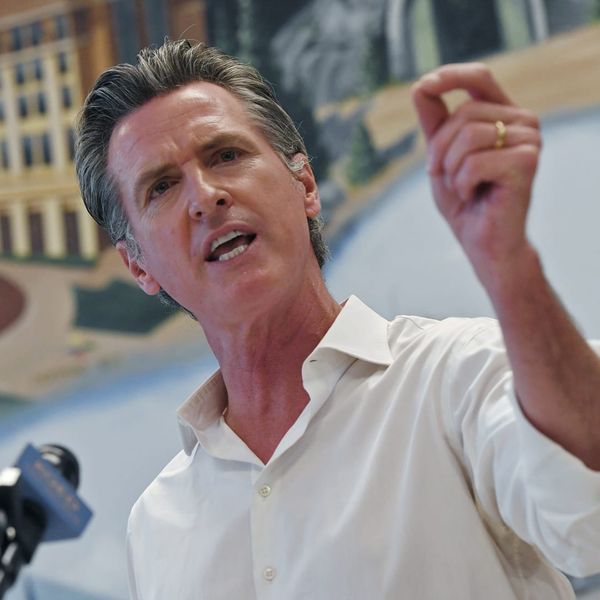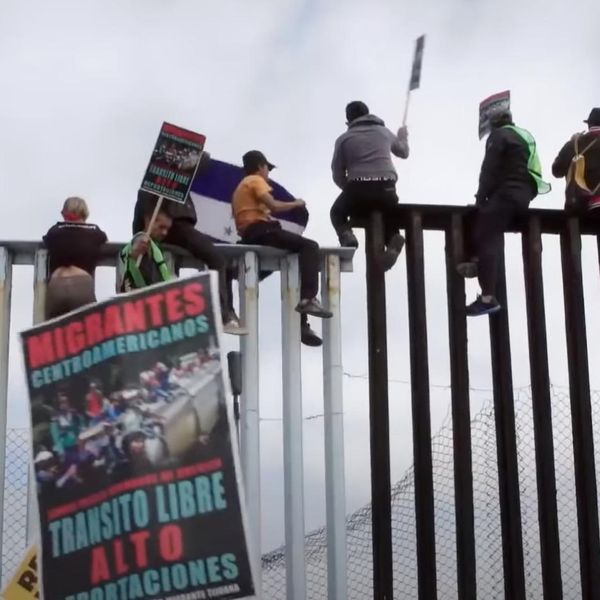Trump Would Commit Same Felony For Which Trump Jr. Escaped Charges

In an interview with ABC News’ George Stephanopoulos this week, President Donald Trump asserted that if he were offered opposition research from a foreign power, he wouldn’t necessarily report it to the FBI right away. And according to an analysis by Washington Post reporter Aaron Blake, the type of actions that Trump described during the interview might be illegal.
In politics, the term “opposition research” refers to negative information that could potentially damage or discredit an opponent. Stephanopoulos, during the interview, ran a hypothetical by Trump: how would he respond if a foreign country like Russia or China offered him opposition research that might benefit his 2020 campaign? And Trump responded that he would likely check out the information and later notify the FBI if something looked suspicious.
Trump made it clear that he wouldn’t automatically decline opposition research simply because it was offered by a foreign national. The president told Stephanopoulos, “I think you might want to listen. There isn’t anything wrong with listening. If somebody called from a country — Norway — (and said), ‘We have information on your opponent?’ Oh, I think I’d want to hear it.”
Trump went on to tell Stephanopoulos, “If I thought there was something wrong, I’d go maybe to the FBI.”
Blake, analyzing Trump’s statements in a June 13 Washington Post article, explains, “It’s worth emphasizing that U.S. law aims to prevent just such a situation as Trump describes. While special counsel Robert S. Mueller III concluded that Trump and his campaign did not actively engage in a conspiracy to work with the Russian government in 2016, the legal code clearly seeks to prevent foreign influence.”
In June 2016, the Trump campaign was offered opposition research on Democratic presidential nominee Hillary Clinton by a Russian attorney with ties to the Kremlin: Natalia Veselnitskaya, and agreed to meet with her. Trump himself was not present at the infamous June 9, 2016 meeting at Trump Tower in New York City, but Veselnitskaya met with Donald Trump, Jr. (the president’s son), Jared Kushner (the president’s son-in-law) and Paul Manafort (Trump’s campaign manager at the time) that day.
Blake notes that under federal law, political campaigns are not allowed to accept “a contribution or donation of money or other thing of value” from a foreign source. Explaining what that means for Trump’s 2016 campaign, Blake writes, “Mueller opted not to charge Trump Jr. for accepting a meeting in which he expected to receive opposition research on Clinton and the Democrats from a Russian lawyer in 2016. But it was not because there was nothing potentially wrong with this; it was because Mueller decided it was unlikely that it could be proven Trump Jr. knew that it was illegal and/or that the information was something ‘of value’ — a key clause in the above legal code. Trump Jr. has always maintained that the information offered by a Kremlin-tied lawyer, Natalia Veselnitskaya, was useless.”
Blake goes on to say, “Even if Trump Jr. was ignorant of the law, that defense doesn’t really fly with his father today — not after a two-year investigation probing exactly that issue. So if Trump accepted opposition research, be it from Norway or anyplace else, and the information actually proved useful, that would seem very likely to be a violation of U.S. law.”








